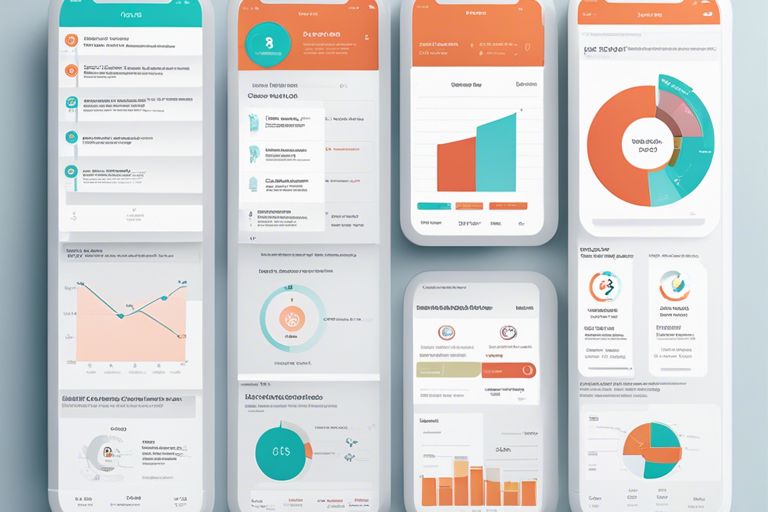Just as the digital landscape continues to evolve, so does the importance of data-driven marketing strategies. In today’s competitive market, businesses must harness the power of data to make informed decisions, drive targeted campaigns, and ultimately, maximize their ROI. Definition 6 presents a comprehensive plan to help businesses effectively implement data-driven marketing tactics. From identifying key metrics to leveraging advanced analytics tools, this plan covers the vital steps for success in the digital age.
Key Takeaways:
- Clear Strategy: Definition 6’s plan provides a clear strategy for implementing data-driven marketing, guiding businesses on how to utilize data effectively for marketing purposes.
- Customization: The plan emphasizes the importance of customization, tailoring data-driven marketing strategies to each business’s unique needs and goals.
- Continuous Improvement: Definition 6’s comprehensive plan includes a focus on continuous improvement, encouraging businesses to analyze results, gather feedback, and adjust strategies for better outcomes over time.
Understanding Data-Driven Marketing
Even in the constantly evolving landscape of marketing, data-driven marketing remains a crucial strategy for businesses looking to achieve success in today’s digital world. By utilizing data and analytics, companies can make informed decisions, personalize experiences for customers, and drive revenue growth.
Key Components of Data-Driven Marketing
To effectively implement data-driven marketing, several key components must be in place. These include collecting and analyzing relevant data, creating targeted strategies based on insights, implementing automation tools for efficient execution, and continuously measuring and optimizing campaigns for maximum impact.
The Evolution of Data Analysis in Marketing Strategies
Data analysis has come a long way in marketing strategies, from basic demographic segmentation to advanced predictive modeling and artificial intelligence. Marketers now have access to a wealth of data sources, allowing for more precise targeting, personalized messaging, and improved customer engagement.
With advancements in technology and the rise of big data, companies can now capture and analyze data in real-time, gaining valuable insights into consumer behavior and preferences. This evolution has transformed marketing from a broad, one-size-fits-all approach to a highly targeted, personalized strategy.
Strategic Planning for Data-Driven Marketing
Goal Setting and KPI Identification
To successfully implement data-driven marketing, it is crucial to establish clear goals and identify Key Performance Indicators (KPIs) that align with your overall business objectives. Setting specific, measurable, achievable, relevant, and time-bound goals will provide a roadmap for your marketing efforts and ensure that you can accurately measure the success of your campaigns.
Data Collection and Management Techniques
An effective data-driven marketing strategy relies on robust data collection and management techniques. Leveraging technologies like Customer Relationship Management (CRM) systems, data analytics tools, and automation software can help businesses collect, analyze, and utilize data more efficiently. Implementing data governance policies and ensuring data quality is maintained are necessary to make informed marketing decisions based on accurate and reliable data.
Setting up a data warehouse can centralize all your data sources, making it easier to access and analyze information, ultimately improving the quality of your marketing campaigns. By integrating data from various touchpoints such as social media, website interactions, and email marketing, businesses can gain a comprehensive view of their customers’ behavior and preferences.

Execution of Data-Driven Marketing Initiatives
Targeted Campaign Development
DataDriven marketing initiatives are only as powerful as the campaigns they fuel. By harnessing the power of data to drive targeted campaign development, businesses can personalize their messaging and offers to specific demographic segments, maximizing relevance and engagement. This approach ensures that marketing efforts are directed towards the most receptive audience, ultimately leading to higher conversion rates and return on investment.
Multichannel Integration and Optimization
Execution of Multichannel Integration and Optimization is crucial in the successful implementation of data-driven marketing strategies. By leveraging various communication channels such as email, social media, and digital advertising, businesses can reach their target audience at different touchpoints, creating a seamless and cohesive brand experience. Optimizing these channels based on data analytics allows for real-time adjustments to be made, maximizing performance and enhancing overall campaign effectiveness.
Integration of data across these channels is key to ensuring a unified customer experience and eliminating communication silos that can hinder marketing efforts. By integrating data and insights from various sources, businesses can create a 360-degree view of their customers, enabling more targeted and personalized marketing strategies that resonate with their audience.
Monitoring and Improving Data-Driven Efforts
Analytics and Reporting Methods
Data-driven marketing efforts rely heavily on analytics and reporting methods to track the success of campaigns. By utilizing tools such as Google Analytics, heat maps, and customer journey mapping, businesses can gain valuable insights into consumer behavior. Identifying key performance indicators (KPIs) and setting up customized dashboards will enable teams to monitor campaign effectiveness in real-time and make data-backed decisions.
Continuous Improvement and Agile Methodologies
On the journey towards data-driven success, continuous improvement and Agile methodologies play a vital role. This approach involves iterative testing, learning, and adapting based on the insights gathered from data analysis. Agile methodologies allow teams to respond quickly to changing market trends and consumer preferences, ensuring that marketing efforts remain relevant and impactful.
Analytics and reporting help identify areas of improvement, but it is the implementation of continuous improvement and Agile methodologies that truly drive success. By embracing a culture of experimentation and agile project management practices, businesses can stay ahead of the curve and continuously refine their data-driven marketing strategies.
Overcoming Challenges in Data-Driven Marketing
Navigating Data Privacy and Regulations
All organizations must navigate the complex landscape of data privacy laws and regulations when implementing data-driven marketing strategies. It is crucial to stay compliant with laws such as GDPR and CCPA to maintain consumer trust and avoid hefty fines. Companies need to establish clear policies for data collection, storage, and usage, ensuring transparency and consent from customers at every touchpoint.
Addressing Data Quality and Silo Issues
To effectively harness the power of data, businesses must address data quality and silo issues that often plague marketing efforts. Quality data is vital for making informed decisions and driving successful campaigns. Breaking down data silos by integrating systems and ensuring data consistency across channels is crucial for a unified view of customers.
Overcoming these challenges requires a holistic approach that involves investing in data governance processes, implementing data validation tools, and fostering a data-driven culture within the organization. By prioritizing data quality and breaking down silos, businesses can unlock the true potential of data-driven marketing and gain a competitive edge in the digital landscape.
The Future of Data-Driven Marketing
Unlike other marketing strategies, data-driven marketing focuses on utilizing insights and analytics to make informed decisions. This approach enables businesses to tailor their campaigns to specific audiences, resulting in more targeted and personalized messaging. To learn more about data-driven marketing, you can check out What is Data-Driven Marketing? The Definitive Guide.
Emerging Technologies and Trends
DataDriven marketing is constantly evolving, with new technologies and trends shaping the landscape. Keeping up with these changes is crucial for staying ahead in the competitive marketing industry.
Preparing for Scalability and Advanced Analytics
With the ever-growing volume of data available, businesses need to prepare for scalability and advanced analytics to extract actionable insights. By implementing the right tools and strategies, organizations can unlock the full potential of their data.
-
Trends
Challenge Solution Managing Big Data Investing in cloud-based storage solutions Data Security Implementing robust encryption protocols
Conclusion
To wrap up, Definition 6’s comprehensive plan for implementing data-driven marketing is a carefully crafted strategy that leverages data to drive successful marketing campaigns. By utilizing data to understand consumer behavior, target specific audiences, and optimize marketing efforts, businesses can make informed decisions that lead to increased ROI and customer engagement. With a focus on collecting, analyzing, and applying data effectively, Definition 6’s approach empowers businesses to stay competitive in today’s rapidly evolving digital landscape. By implementing this data-driven marketing plan, businesses can unlock valuable insights and drive impactful results in their marketing efforts.
FAQ
Q: What is Definition 6’s Comprehensive Plan For Implementing Data-Driven Marketing?
A: Definition 6’s Comprehensive Plan For Implementing Data-Driven Marketing is a strategic approach that leverages data to make informed decisions and drive marketing strategies. It involves collecting, analyzing, and applying data insights to optimize marketing campaigns and improve overall performance.
Q: How does Definition 6’s Plan for Data-Driven Marketing benefit businesses?
A: Definition 6’s Plan for Data-Driven Marketing helps businesses improve their ROI by targeting the right audience, personalizing campaigns, and measuring success accurately. It also enhances customer engagement, boosts conversion rates, and fosters long-term relationships with customers.
Q: What are the key components of Definition 6’s Comprehensive Plan For Implementing Data-Driven Marketing?
A: The key components of Definition 6’s Comprehensive Plan For Implementing Data-Driven Marketing include data collection methods, data analysis tools, campaign optimization strategies, performance tracking metrics, and continuous improvement processes. By integrating these components, businesses can drive growth and stay competitive in the digital landscape.



